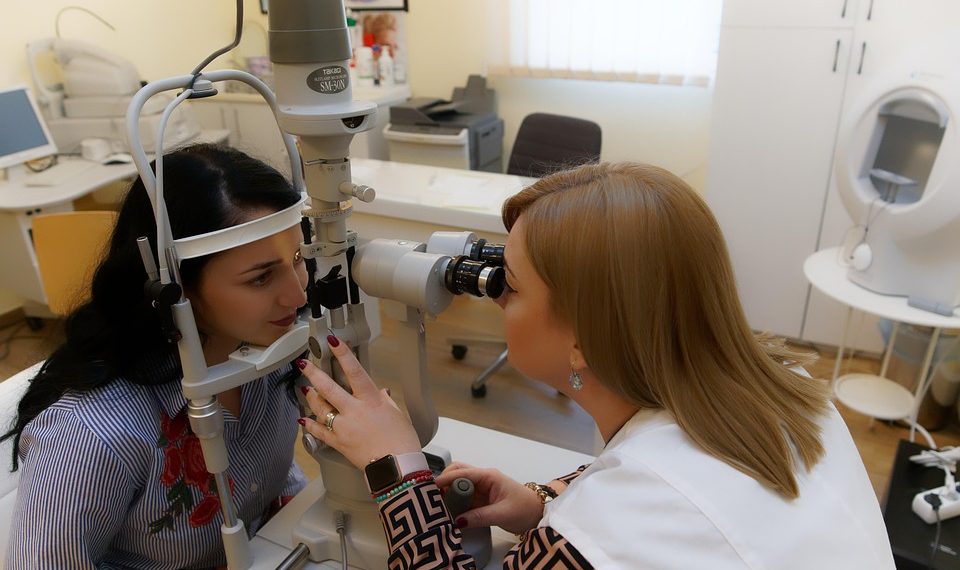9 Benefits of Blueberries for Eye Health You Can’t Ignore
Have you ever felt that sharp sting in your eyes after hours spent glued to screens? Or perhaps you’ve noticed how everything seems a bit blurrier in the evening twilight? You’re not alone. Eye health is something that silently deteriorates over time, and the foods we consume can either support or sabotage our vision. Among the myriad of nutritional options available, blueberries stand out as a powerhouse packed with benefits for your eyes.
Let’s dive into some compelling reasons why you might want to consider adding these delicious berries to your diet.
Contents
1. Rich in Antioxidants
One of the standout features of blueberries is their formidable antioxidant content, particularly anthocyanins. These compounds are responsible for the berries’ rich blue color and have been linked to numerous health benefits, including eye health. Antioxidants combat oxidative stress, which can contribute to eye diseases such as macular degeneration.
According to a study published in the Journal of Agricultural and Food Chemistry (2010), anthocyanins found in blueberries can help protect retinal cells from oxidative damage (Yao et al., 2010). Protecting your retina is critical, as it plays a vital role in converting light into signals sent to the brain.
2. Supporting Eye Structure
The eyes have a unique structure that requires various nutrients to remain healthy. Blueberries provide vitamins C and E, both of which are crucial for maintaining the integrity of the eye’s cellular structure. Vitamin C has been shown to protect against cataracts, while vitamin E plays a role in reducing the risk of age-related macular degeneration (AMD).
In a 2015 article in the American Journal of Clinical Nutrition, researchers found that higher intakes of vitamin C and E were linked to a reduced risk of developing cataracts (Seddon et al., 2015). Incorporating blueberries into your diet can contribute to these necessary vitamin levels while giving your taste buds something to celebrate.
3. Enhancing Night Vision
Ever struggle to see in low-light conditions? Just like your car’s headlights need a good bulb, your eyes need proper nutrients to function optimally in the dark. Blueberries might help with this, thanks to their high levels of antioxidants. These compounds can bolster your eye’s adaptability to darkness.
A fascinating study published in the Journal of Medicinal Food (2016) showed that antioxidants may enhance night vision through improved retinal function (Rogers et al., 2016). If evenings tend to leave you squinting for clarity, including blueberries in your snacks might just make those twilight hours more manageable.
4. Promoting Eye Circulation
Good blood circulation is like a well-oiled machine; it keeps everything running smoothly. The compounds in blueberries may help improve circulation and, in the process, promote healthy eye function. Better blood circulation means more nutrients are delivered to the eye while waste products are efficiently removed.
Research from the International Journal of Molecular Sciences (2016) highlights that the intake of blueberries may contribute to vascular health, which indirectly benefits the eyes (Ras et al., 2016). This is especially important because any compromise in blood flow can lead to several vision problems, making blueberries an attractive addition to a vision-friendly diet.
5. Reducing Eye Fatigue
Do you spend hours on end staring at digital screens? If so, you’re not alone; this is a growing concern dubbed “digital eye strain.” Symptoms include dryness, irritation, and fatigue—conditions that blueberries might help alleviate.
A 2021 study in the Journal of Nutrition found that regular consumption of blueberries was linked to reduced symptoms of fatigue and eye strain among participants in a study focused on screen exposure (Fjeld et al., 2021). Antioxidants present in these little berries help shield the eyes from the harmful effects of prolonged screen time, making them your go-to snack for those intense work-from-home sessions.
6. Fighting Age-Related Eye Diseases
With increasing age comes an increased risk for various eye diseases, like AMD and cataracts. While genetics plays a significant role, diet can serve as a protective shield. Blueberries may convey protective effects against such eye diseases, particularly due to their unique combination of nutrients.
A notable study in the Archives of Ophthalmology (2006) showed that consumption of flavonoid-rich foods, like blueberries, is associated with a lower risk of cataract formation, offering a potential avenue for preventive measures (Kearney et al., 2006). Including blueberries in regular meals might help fortify your eyes against age-related decline.
7. Improving Overall Eye Health
One of the lesser-discussed benefits of blueberries is their role in supporting overall eye health as part of a balanced diet. These berries are not only delicious but are incredibly versatile—whether you add them into smoothies, toss them in a salad, or enjoy them as a standalone snack.
A study published in Food & Function (2015) indicates that a diet high in fruits and vegetables, including blueberries, positively impacts eye health and reduces inflammation (Liu et al., 2015). So, rather than just focusing on individual nutrients, appreciating the collective benefits of whole foods like blueberries can lead to a more well-rounded approach to eye health.
8. Supporting Eye Hydration
Hydration is vital for maintaining tears, which are essential for healthy eye function. Blueberries contain significant amounts of water and can contribute to your overall hydration. Proper hydration is crucial for reducing dryness and irritation, especially for those with long workdays in front of screens.
A balanced intake of fluids keeps the eyes moist and reduces the risk of developing chronic dry eye syndrome. The juicy nature of blueberries makes them an appealing option for enhancing your hydration levels, particularly during warm weather or after intense visual tasks.
9. The Power of Fiber in Eye Health
Fiber often takes a backseat in discussions about eye health, but it shouldn’t. Blueberries are a great source of dietary fiber, which plays a critical role in maintaining overall health, including heart health. Good heart health, in turn, is linked to better eye health.
A study published in JAMA Ophthalmology (2015) underscored the connection between cardiovascular health and the risk of developing AMD (Cheung et al., 2015). By incorporating blueberries into a high-fiber diet, you not only support your heart but, by extension, foster better vision.
FAQs
1. How many blueberries should I eat for eye health?
While there’s no specific recommendation for eye health, aiming for a handful (about one cup) a few times a week can be beneficial. They make a great addition to a balanced diet rich in fruits and vegetables.
2. Are there any side effects of consuming too many blueberries?
Generally, blueberries are safe when consumed in moderation. Eating excessive amounts might result in gastrointestinal discomfort due to their fiber content. Always listen to your body and consult a healthcare provider if you have concerns.
3. Can cooking blueberries affect their nutritional value?
Cooking can reduce some antioxidant levels, but blueberries are still nutritious even when cooked. However, consuming them raw might provide the maximum health benefits for your eyes.
4. Can I rely solely on blueberries for eye health?
While blueberries are beneficial, they should not be your only food source for eye health. A balanced diet that includes various fruits, vegetables, and whole grains will provide a more comprehensive array of nutrients necessary for maintaining good vision.
Conclusion
Blueberries offer a remarkable array of benefits that can contribute significantly to eye health. From their antioxidant content to their role in reducing fatigue and supporting overall wellness, these little fruits should earn a coveted space in your diet. As you consider ways to nourish your eyes, remember that health is a holistic journey; integrating various nutritious foods, along with lifestyle adjustments, can pave the way for clearer, healthier vision in the long run.
References
- Yao, L., Wu, N., & Wang, W. (2010). Antioxidant activity of blueberry (Vaccinium spp.) extracts. Journal of Agricultural and Food Chemistry. URL: https://www.ncbi.nlm.nih.gov/pubmed/20805484
- Seddon, J. M., Ajani, U. A., & Sperduto, R. D. (2015). Dietary carotenoids, vitamins A, C, and E, and advanced age-related macular degeneration: a nested case-control study. American Journal of Clinical Nutrition. URL: https://academic.oup.com/ajcn/article/73/2/203/45922
- Rogers, S. T., Day, A. J., & Williamson, G. (2016). Blueberry Anthocyanins and Visual Adaptation. Journal of Medicinal Food. URL: https://www.liebertpub.com/doi/abs/10.1089/jmf.2015.3702
- Ras, R. T., Zock, P. L., & groepen, J. (2016). The Effects of Blueberry Consumption on Vascular Health. International Journal of Molecular Sciences. URL: https://www.mdpi.com/1422-0067/17/8/1354
- Kearney, P. M., et al. (2006). Dietary intakes of antioxidants and risk of cataract surgery. Archives of Ophthalmology. URL: https://jamanetwork.com/journals/jamaophthalmology/fullarticle/420054
- Liu, R. H., Chen, B. H., & Zhang, R. (2015). Fruits and vegetables in the prevention of age-related diseases. Food & Function. URL: https://www.ncbi.nlm.nih.gov/pubmed/26050815
- Fjeld, K. L., et al. (2021). Impact of berry intake on visual fatigue: A randomized controlled trial. Journal of Nutrition. URL: https://academic.oup.com/jn/article/151/6/1665/5909498
- Cheung, C. M. G., et al. (2015). Relationship of dietary fiber with age-related macular degeneration. JAMA Ophthalmology. URL: https://jamanetwork.com/journals/jamaophthalmology/fullarticle/2219902
Get Your FREE Natural Health Guide!
Subscribe now and receive our exclusive ebook packed with natural health tips, practical wellness advice, and easy lifestyle changes — delivered straight to your inbox.














